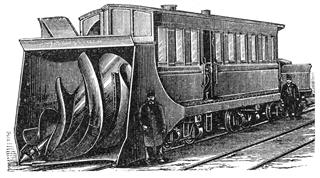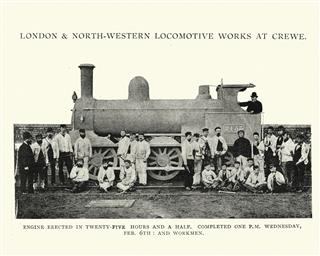
The Chinese Exclusion Act was the result of a combination of envy of Chinese labor, coupled with a misguided notion of white racial superiority. If you’re wondering why the Chinese Exclusion Act of 1882 was passed, then your search ends right here! Historyplex tells you what was the purpose of the Chinese Exclusion Act of 1882, along with several facts about its background, causes, effects, and significance.
| Did You Know? The Chinese Exclusion Act was the first US immigration policy based on race. |
Modern United States is a pluralistic society, composed of people from different ethnic origins. Immigrants have traditionally been drawn to this country by its reputation as the ‘land of opportunities’, and, in turn, they have helped shape its society in their own way, without which it wouldn’t be the superpower it is today. While America’s immigration policies may be under debate today, there have been a few regrettable periods in its past, when racial identities played an important role in their formulation. The Chinese Exclusion Act of 1882 rightly fits this description.
One of the main reasons for America’s rapid industrial development in the middle of the 19th century was the Transcontinental Railroad Project. Workers arriving from China provided the main labor force for this railroad, which connected distant parts of the vast country, besides making communication faster. But they did not receive any recognition for their sacrifices. In fact, these workers were even excluded from the celebrations of the project upon its completion in 1869.
This kind of discrimination culminated in the passing of the Chinese Exclusion Act, which aimed to keep out Chinese laborers from America. Let us see some more important facts about the Chinese Exclusion Act of 1882.
What Was the Purpose of the Chinese Exclusion Act?
This was a Congressional Act which was signed by President Chester A. Arthur on May 6, 1882, which intended to ban the immigration of Chinese laborers to USA for the next ten years. Its summary is as follows:
- Skilled and unskilled Chinese workers involved in the mining industry were prohibited from entering America for a decade.
- Non-laborers needed a certificate from the Chinese government regarding their qualifications.
- If an earlier immigrant exited the country, he needed a re-entry certificate to be allowed back in.
- The captain of a ship which knowingly brought Chinese immigrants to American shores was liable for a fine of $500 per immigrant, along with a year’s imprisonment.
- All US Courts were forbidden from conferring citizenship on any Chinese immigrant.
- It was based under the presumption that, these immigrants posed a threat to the law and order in certain American localities.
Background and Causes
When the California Gold Rush began in 1848, it brought with it the promise of wealth, attracting Americans and immigrants alike. A large part of these immigrants were Chinese, who faced abject poverty back home owing to a civil war. They had initially planned to make money and return to their families in China. However, soon, the reserves of gold began thinning out, and these immigrants were forced to seek long-term jobs.
In the 1860s, authorities from the Central Pacific Railroad began hiring laborers to work on the Transcontinental Railroad Project. Most American laborers were unwilling to work on it, but the Chinese excelled in such backbreaking work, and were a favorite of employers, especially because of their readiness to work for low wages. These immigrants had to send money back home to feed their families, apart from paying back merchants who had helped send them to America, and hence, gladly accepted low wages, since these were more than they would earn in China. In fact, these laborers were so instrumental in the construction of the railroad, that the US and China signed the Burlingame Treaty in 1868, which granted freedom from persecution to immigrants from either country.
In the post-Civil War years of the early 1870s, the American economy was in a mess, resulting in large-scale job cuts. Many labor unions began blaming the Chinese for wage reductions and employment issues, as they agreed to work for much lower pay than their white counterparts. In fact, American laborers had traditionally demanded higher wages. Moreover, some thought that the Chinese had been sending large quantities of gold found in the mines back home, which was affecting the American economy.
Meanwhile, the Chinese laborers retained their customs and established close-knit communities in the country, without integrating into the mainstream. Rumors spread that areas with significant Chinese populations had turned into dens of prostitution, gambling, and opium abuse, thus threatening American culture. On the other hand, many people, including senators, also held the racist argument that these Asian immigrants were diluting the superiority of the white race. Many states passed laws forbidding marriage between the Chinese and whites.
As the dislike for the Chinese grew in America, the government found it hard to balance the feelings of Americans with the country’s relations with China. Meanwhile, ethnic riots broke out in parts of the country, where white miners targeted the Chinese, resulting in several deaths in San Francisco in 1877, and in Denver in 1880. In this backdrop, the US and China reached an agreement, wherein China agreed to the US limiting the number of Chinese immigrants, without prohibiting them completely.
However, as the political clout of the labor unions grew, Congress stepped in and tried to pass the first version of the Chinese Exclusion Act in 1881, which aimed to prevent Chinese immigration for twenty years altogether. President Chester A. Arthur vetoed this bill, saying that it was too harsh. The Act was finally signed by the president on May 6, 1882, with the period of prohibition decreased to ten years.
Effects and Significance
The Chinese Exclusion Act was one of the dark phases in American history. On June 18, 2012, the House of Representatives apologized for this Act, which ended up oppressing innocent immigrants for almost 80 years, and severely tarnished the country’s image.




